GENERAL DATA
Plant Parts: Root, Root hydrosol
Cultivation Mode: Cultivated/ Wild Collection
In Manufacturing: Beverages, Pharmaceutical, Cosmetics, Confectionery, Oil, Herbal Tea, Livestock and Poultry, Perfumery, Extract, Veterinary and Insecticide
In Food: Herbal tea
🌿 Industries That Use Valerian Root (Valeriana officinalis L.)
Valerian root is a highly regarded medicinal herb used globally for its sedative, anxiolytic, and antispasmodic effects. The root contains valerenic acids, iridoids, alkaloids, and volatile oils that contribute to its action on the central nervous system.
1. Pharmaceutical & Nutraceutical Industry
Valerian root is one of the most scientifically supported herbs for sleep disorders and anxiety relief.
-
Sleep aid: Used to treat insomnia, reduce sleep latency, and improve sleep quality
-
Anxiolytic: Calms nervous tension, restlessness, and mild anxiety
-
Muscle relaxant: Reduces spasms and neuromuscular tension
-
Common forms:
-
Capsules & tablets
-
Tinctures & standardized extracts
-
Powdered root for supplements
-
✅ Widely accepted in both Western herbalism and clinical phytotherapy
2. Herbal & Traditional Medicine
Used for centuries in European, Persian, and Ayurvedic medicine for neurological and muscular conditions.
-
Conditions treated:
-
Epilepsy and seizures (traditionally)
-
Hysteria, stress-related palpitations
-
Menstrual cramps and digestive spasms
-
-
Often combined with:
-
Passionflower, Lemon balm, or Chamomile
-
-
Traditional formats:
-
Herbal teas (with strong, earthy aroma)
-
Decoctions and topical compresses
-
✅ Used in folk traditions to “calm the spirit” and ease inner agitation.
3. Functional Tea & Beverage Industry
Valerian root is a functional tea ingredient, often part of nighttime blends.
-
Combined in:
-
Sleep-promoting herbal teas
-
Relaxation infusions (often blended with Mint or Lavender)
-
-
Forms:
-
Dried root slices
-
Tea bags
-
Loose-leaf blends
-
✅ Though the aroma is pungent, it remains popular in wellness drinks.
4. Aromatherapy & Essential Oil Industry
While not as widely used in perfumery due to its earthy scent, Valerian essential oil has niche applications in aromatherapy.
-
Applications:
-
Calming diffuser oils
-
Stress-relieving blends
-
Massage oils for sleep and tension
-
✅ Distilled from the dried root and used in low concentrations.
5. Pet & Veterinary Industry
Valerian is used in natural calming products for dogs, cats, and horses.
-
Reduces:
-
Travel stress
-
Noise phobias (fireworks, thunderstorms)
-
General nervous behavior
-
-
Forms:
-
Herbal sprays
-
Chewables or tinctures
-
Blended drops with L-theanine or chamomile
-
✅ Popular among holistic veterinary product manufacturers.
6. Ethnic, Organic, & Export Markets
-
Valerian root is commonly exported as:
-
Whole dried roots
-
Powdered bulk root
-
Extracts and concentrate pastes
-
-
Sold via:
-
Apothecaries, herbal pharmacies, integrative medicine platforms
-
Ethnic health stores and online supplement vendors
-
✅ Especially in demand in Europe, North America, Iran, India, and China.
✅ Summary of Key Applications
| Industry | Common Uses |
|---|---|
| Pharmaceutical & Nutraceutical | Sleep aid, anxiety relief, nervous tension, muscle spasms |
| Herbal & Traditional | Decoctions, cramp relief, mental calm, sedative herbal teas |
| Tea & Beverage | Relaxing tea blends, functional nighttime infusions |
| Aromatherapy | Essential oil for calm and rest |
| Pet & Veterinary | Natural calming remedies for animals |
| Export & Organic Markets | Bulk dried roots, powders, extracts for international trade |
🌿 Key Features of Valerian Root
-
Botanical name: Valeriana officinalis L.
-
Plant part used: Dried root and rhizome
-
Aroma: Strong, musky, earthy (due to isovaleric acid)
-
Active compounds: Valerenic acid, valepotriates, essential oils, flavonoids
-
Primary actions: Sedative, anxiolytic, antispasmodic
-
Common forms: Dried root, powder, capsules, extract, tea
PRODUCT NAME IN DIFFERENT LANGUAGES
Persian Name: Sonbol Tib- Sonbole Hendi- Alafe Gorbe/ سُنبُل الطیب- سُنبُل هِندی- عَلَفِ گُربه
German Name (Deutschland, Austria, Switzerland): Baldrianwurzel
French Name (France, Belgium, Switzerland, Quebec): Herbe aux chats, Herbe à chat
HARVEST CALENDAR
Feb
Mar
Apr
May
Jun
Jul
Aug
Sep
Oct
Nov
Dec
To order Valerian root, please contact us.
About Valeriana Officinalis
It is an herbaceous plant, perennial, tall and vertical. Its height is up to 2 meters. Its stem is cylindrical with deep and hairy grooves. Valerian leaves are reciprocated and divided into many leaflets. Each leaf has 7 to 11 and sometimes more leaflets. The leaflets are oval, pointed with a broad, serrated base. The pink flowers appear in groups at the end of the flowering stem in late spring.
All parts of the plant, including the aerial parts and the roots, emit a pleasant odor that is very interesting and attractive to cats, and cats wander around the plant on the ground and feel pleasure. Valeriana officinalis roots are scattered attached to its underground stems and are intertwined, and it is this underground stem and plant root that is used as medicine in traditional medicine.
Wild and desert Valerian is usually called small valerian, because if it is planted and cultivated, they get higher height and longer stems, but the medicinal properties of Wild Valerian root are more than cultivated Common Valerian root. For this reason and because Valerian grows in the wild enough and in abundance, planting this herb is not usual.
Harvesting of Valeriana officinalis roots is often done in the spring before the stems grow. Usually, the roots are harvested from plants that are more than 3 years old. The underground stems of this plant, which are covered with small roots, are usually marketed in pieces with a length of 2 to 5 cm, the diameter of which is about one centimeter. The color of this root is dark brown after drying, its taste is bitter, fragrant, and aromatic. The interesting thing is that the underground stem and root of Valerian that is just harvested have a little smell and aroma, but after drying, the aroma becomes much stronger.
Valerian Root Temperament
Warm and dry in second degree.
Valeriana officinalis Root Chemical Constituents
volatile essential oils, glucoside, alkaloid, chatinine, valeriana, bornyl isovalerate, bornyl formate, bornyl acetate, bornyl butyrate, borneol, pinene, valerianine, valeric acid, formic acid, acetic acid, tannin, and a-methyl pyridyl ketone.
Valerian Root Health Benefits
In China and Japan, soaking Valeriana officinalis root in water or its tincture (soaked in alcohol) is used as an antispasmodic, sedative, analgesic, and anti-stimulant, and in some cases as a fever reliever.
In other parts of the Far East, it is used as a stimulant, carminative, and disinfectant, anti-anxiety, anti-epileptic, to treat chorea and to relieve nervous disorders associated with wartime disorders and urine intermittency.
In Indochina, Valerian rhizome is used alone and by fumigation to relieve inflammation.
According to the scholars of traditional Iranian medicine, Valeriana officinalis root relieves obstruction and congestion of the brain, stomach, liver, and strengthens the brain, stomach, cold liver, and can warm them, and brightens the complexion, strengthens sexual power, and premature ejaculation. Valerian root increases urination and is useful as emmenagogue. Crushes bladder stones. It’s useful for moist cough, shortness of breath, chest pain, suffocation, phlegm vomiting, bloating, ascites, jaundice, spleen pain, internal inflammation, and hemorrhoids.
If it is eaten with Wormwood (Artemisia absinthium), it is appetizing and strengthens the stomach, and if eaten with cold water, it is beneficial for relieving confusion, suffocation, and bloating. If Valerian rhizome is rubbed to the eyes with coriander juice, it is useful for relieving redness of the eyes, strengthening eyesight, growing eyelashes, and drying out moisture.
Valerian Root Side Effect
It is harmful for kidney.
Valerian Root Modifiers
Valerian Root Dose
Up to 4.5 grams.
To order Valerian herb, please contact us.



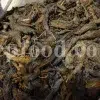
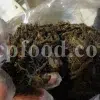



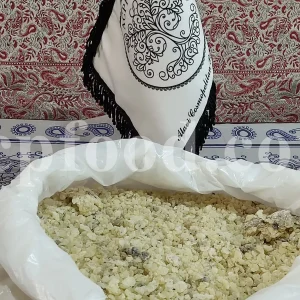
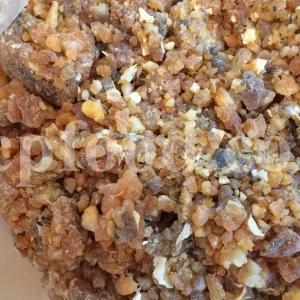
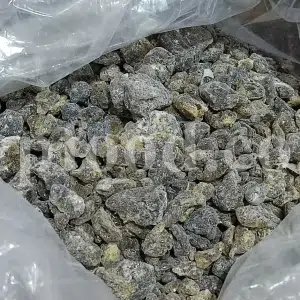
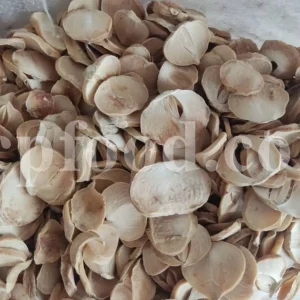
Reviews
There are no reviews yet.